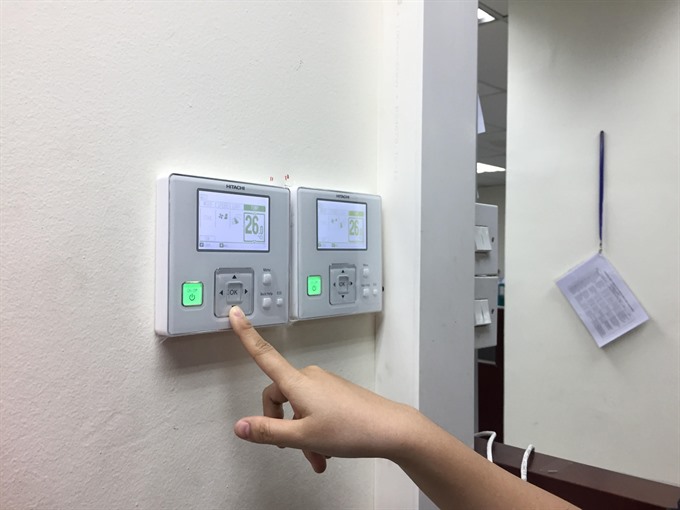Green offices to reduce GHG emissions
With nearly 2.8 million office workers, Viet Nam can cut up to 6% of greenhouse gas (GHG) emissions by altering to green lifestyles and sustainable consumption, the Asian Institute of Technology (AIT) in Viet Nam has reported.
 |
| Setting air-conditioners at 26 degrees Celcius is recommended for saving electricity. — VNS Photo Khoa Thu |
The conclusion follows an initiative entitled “Green Office – Low-carbon sustainable lifestyle in Viet Nam,” piloted at 11 different offices in Ha Noi, Da Nang, and HCM City from May, 2017 to November, 2018 under the ten-year framework of programmes on sustainable consumption and production.
The project is designed for office workers, aiming to reduce GHG emissions through limiting solid waste and the use of electricity, water, paper, and stationery.
Guidance on green lifestyles and offices along with GHG emissions accounting tools were also developed based on the GHG Corporate Protocol. This document suggests workers take small steps, including reducing food waste, using public transportation, telecommuting and carpooling to help protect the environment.
TUV Nord Viet Nam, a company in Ha Noi participating in the initiative, has reduced 25.8% of their carbon consumption over the past year. The initiative, moreover, helps the company save VND3-4 million (US$123-170) on their electricity bill per month by applying simple solutions, such as increasing natural light or using fans along with air conditioners to help circulate air.
“The Green Office Initiative is suitable for offices of all sizes in Viet Nam and proved its efficiency applied at piloted offices. AIT-VN expects to expand the project and build recommendations for Viet Nam’s policies on environmental protection,” said Nguyen Thi Bich Hoa, the project director.
Commitments of participants are the biggest challenges to the initiative.
“If officers see the benefits of the green office initiative to their companies, it will be better implemented,” she said.
“The results at pilot offices will be an important input for us, policymakers, to adjust policies in the near future to make it more consistent with the country’s green growth strategies,” said Nguyen Tuan Anh from the Ministry of Planning and Investment.
(Source: VNS/ DA NANG Today)